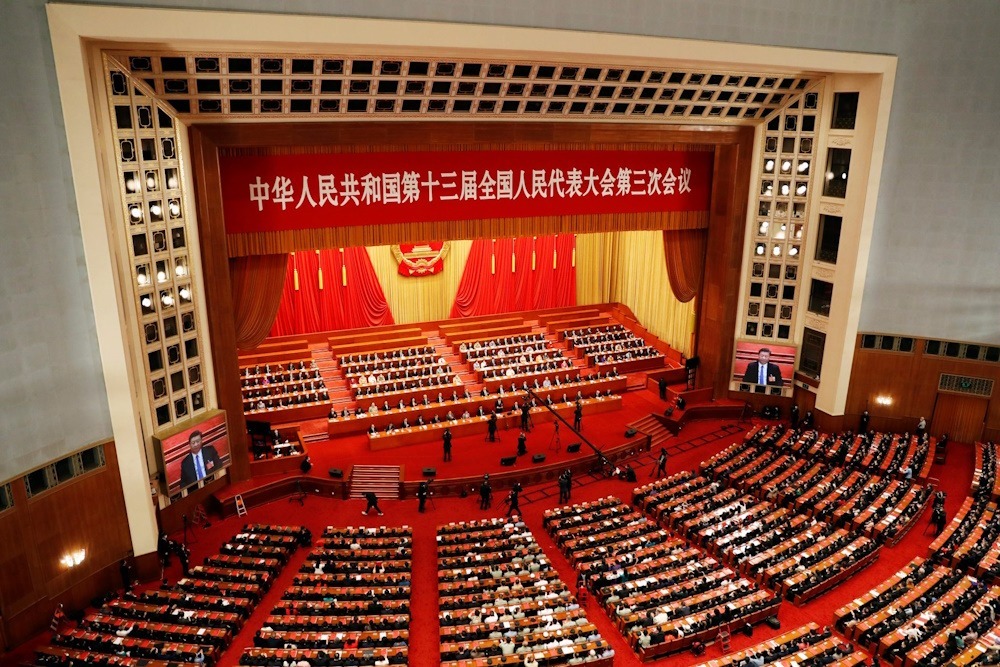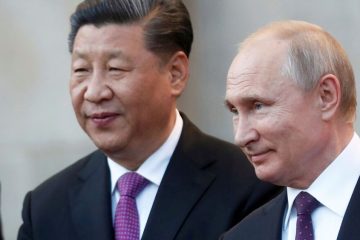China attention on initiatives to restart the economy during “Two Sessions.”

The markets are closely observing Beijing’s actions to stimulate the world’s second-largest economy as the “Two Sessions” policy talks begin next week.
There is a lot at risk. The National People’s Congress deputies and top officials assemble annually at a time when China’s economic problems are becoming worse. Stock markets have endured a brutal selloff, consumers have tightened their purse strings, and the country’s real estate behemoths are fighting for survival. There has been continually dismal data, casting concern on whether stimulus has been bold enough, despite the government’s efforts to stabilize the economy, which include moves to boost housing demand.
Investors are keeping a close eye on key statements, such as China’s economic outlook for 2024, which includes goals for GDP growth, inflation, and employment. Most people will be keeping a close eye on the GDP target, which the nation has only missed twice.
Chinese Premier Li Qiang will disclose the economic growth target in his annual government work report on Tuesday, though traders will have to wait until Monday for that. Experts predict that Beijing will maintain its target of “around 5%” until 2023. The market is predicting a 4.6% growth for this year, supported by the current policies.
The narrative of GDP objectives will reveal the extent of China’s macroeconomic policies and the compromises the government has to make in order to sustain growth, according to Bruce Pang, head of Greater China research and chief economist at JLL, as reported by Dow Jones Newswires.
A goal of 5% or more could indicate a strong commitment to reviving the economy, which could lead to more robust intervention in the future, according to economists. A reading below 5% would be interpreted as more pessimistic, indicating a possible tightening of policies.
The subsequent metrics will provide light on Beijing’s delivery strategies and are therefore crucial to understanding the aim.
“Beijing’s willingness to roll out more aggressive stimulus to boost consumer spending is another important thing to watch,” said Tommy Wu, senior China economist at Commerzbank AG. This relates to deflation and consumption. The speaker informed Dow Jones Newswires that the proposed measure will offer more value for the money compared to more infrastructure expenditure.
As it has done every year since 2015, Beijing is anticipated to maintain its consumer inflation target at approximately 3% this year.
One of the main drivers of economic growth in China, consumer demand, has investors worried. Consumer inflation in China hit a 14-year low in January, a sign of persistently weak demand.
The report from DB Research states that investors should seek ways to boost consumption, such as trade-in programs, incentives to upgrade large-scale equipment, reforms to the banking sector and capital markets, and efforts to attract foreign investment.
PROPERTY: The property sector will undoubtedly receive attention from policymakers, but the wording of any laws will be carefully examined.
In order to assist financially troubled developers in completing their housing projects, China is likely to turn to state-owned firms. Investors will closely observe if Premier Li leaves out the term “housing are for living in, not for speculation” in order to gain insight into potential policies regarding the property sector, according to a report by Asia Society’s Neil Thomas and Jing Qian.
In late 2016, as they aimed to tighten control over the real estate market, top officials began to emphasize that line. People assumed they were leaning toward softening when they omitted the line from last year’s Politburo statement in July.
Bruce Pang of JLL speculates that China’s plans to further loosen property regulations would be signaled if Li abstains from using the phrase during the Two Sessions.
Announcements of further assistance and obvious market actions provide “a lifeline for real estate,” according to Moody’s Analytics. According to Moody’s, the government may speed up the completion of unfinished properties by providing additional funds for the property sector. Customers’ faith and demand have been eroded due to project delivery delays. “Efforts to boost demand could bring another easing of restrictions for first-time home buyers and a reduction of the down payment ratio,” they add later on.
While keeping an eye on rising levels of local-government debt, market observers are also trying to discern if the economy is receiving greater fiscal support.
Strategists at Goldman Sachs predict that the government will aim for a deficit of 3% of GDP in 2024. Last March, China established the same aim, but after issuing special bonds to help disaster relief, they lowered it to 3.8%.
According to GS’s note, “could help improve confidence towards the economic outlook this year” if the government surprised with positive numbers, such as a deficit target larger than 3%-3.5% of GDP or a special bond issuance quota above CNY1 trillion.
Investors will wonder how to trade the news with all the announcements to consider.
The decision to restart the “stalled engines of economic growth: consumption and investment” hinges on the government’ ability to persuade investors of their seriousness, according to a note from UBS analysts and strategists.
With a lean toward defensive, high-yielding dividend companies, UBS proposes a so-called barbell strategy—investing equally in high- and low-risk assets—in the case of moderately supportive policy. In addition, they note that “this segment, which overlaps heavily with state-owned enterprises (SOEs) is likely to benefit disproportionately from both targeted easing and National Team buying,” which are stock purchases by government-related institutions that boost the market. If officials pull off a successful surprise, inexpensive valuations present a chance to “position in recovery-sensitive internet and consumer sectors, as well as medium- to longer-term beneficiaries of China’s growth drivers of the future, like consumption, green tech, and high-tech industries.”
The analysts’ consensus is that the current situation will continue until there is a significant increase of backing.
“In order to reinvigorate market confidence and put a floor on growth, Beijing will probably have to take bolder steps,” Wu of Commerzbank said.






